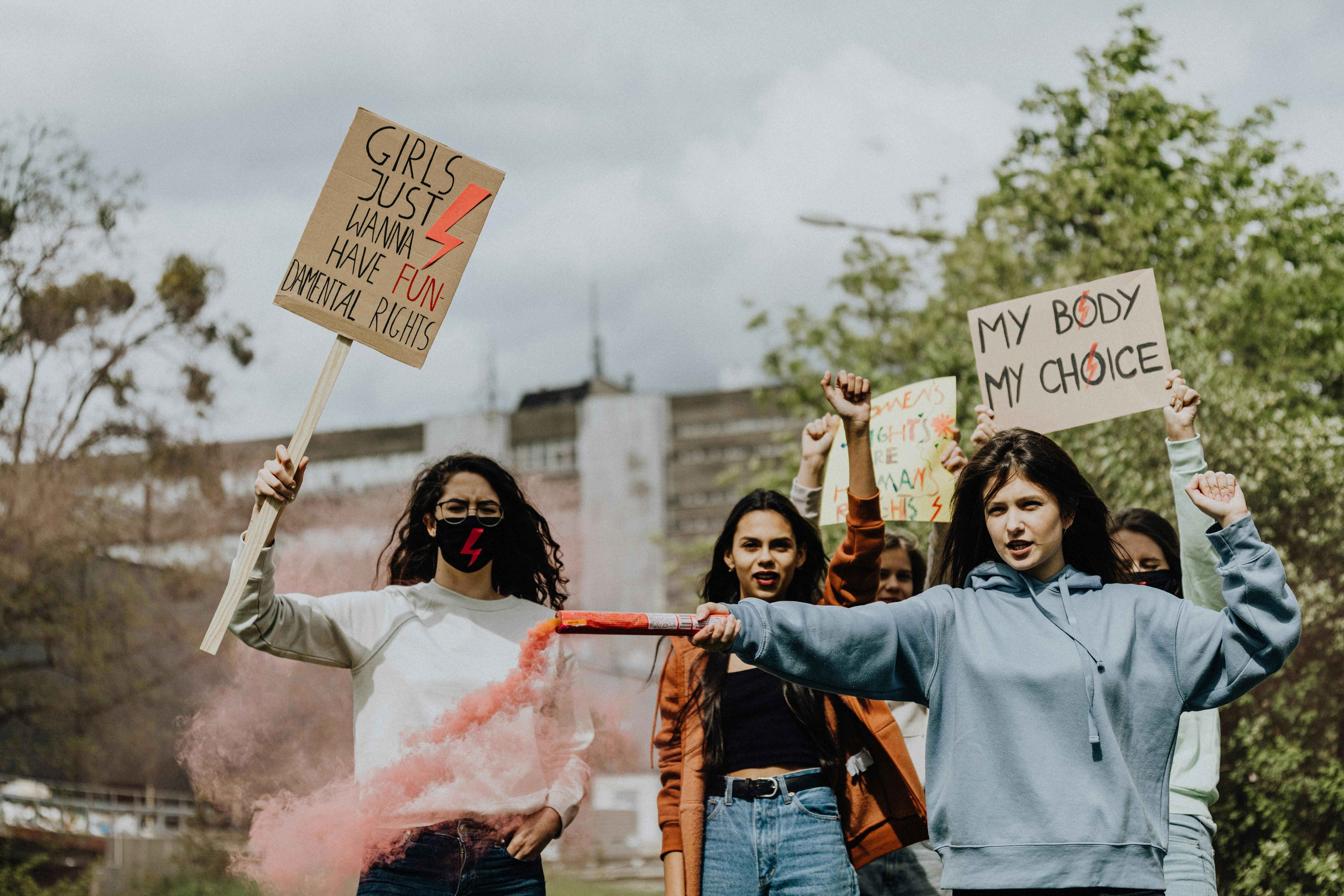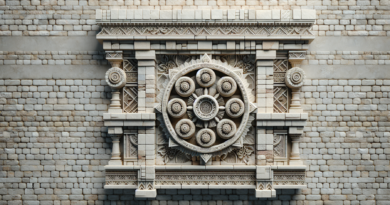French Revolution
Picture yourself as an adventure seeker, as you traverse through the thrilling pages of history, ready to engage with revolutionary France. This article unravels the complexities of the French Revolution, an epoch marked by social and political upheaval that forever changed France’s face. Not only will you explore key events, influential personalities, and the revolution’s powerful ideologies, but you’ll also discover how this historical moment resonates globally. So buckle up, for you’re about to embark on an enlightening journey through the tumultuous streets of 18th-century Paris and beyond, exploring the French Revolution in all its raw and gritty glory.
Causes of the French Revolution
The French Revolution, a pivotal event in world history, was triggered by a confluence of factors that transfigured France and left an enduring impact on the world.
Economic turmoil
You might find it unusual, but bread—or, more accurately, the lack of it—played a central role in the French Revolution. Devastating harvests in the years leading up to the revolution pushed the price of bread to untenable heights. You had a vast section of society, the third estate, comprising the working class, toiling away without enough to eat. Simultaneously, war expenditures and extravagant royal spending deepened the country’s financial crunch.
Social inequality
Life in pre-revolution France was far from fair. You had a rigidly hierarchical society with privilege and wealth concentrated within the first two estates—the clergy and the nobility. Meanwhile, the third estate, despite making up the vast majority, were subjected to heavy taxes and had little to no representation in government.
Political incompetence
When you picture Louis XVI, think of a well-intentioned but weak ruler. His inability to push through reforms and deal with the mounting economic crisis further worsened public discontent. Moreover, his decision to convene the Estates-General only further highlighted the social and political disparities in French society.
Influence of Enlightenment ideas
But the French Revolution wasn’t solely a tale of dissatisfaction and destitution. These larger changing global perspectives transformed the world. The Enlightenment era’s thinkers, with their push for rationality, liberty, and people’s sovereignty, profoundly influenced the demand for a more equitable society.
Chronology of the French Revolution
Historically significant events, much like a complicated recipe, don’t happen overnight. The French Revolution spanned over a decade, with each period depicting the changing nature of the revolution itself.
Events leading up to 1789
The years before 1789 were marked by economic instability, social tensions, and political ineptitude sparking public discontent. The summoning of the Estates-General in 1788 left the country ripe for dramatic change.
Outbreak of the Revolution (1789–1791)
Once the revolution began, actions escalated quickly. From the storming of the Bastille to the spiraling prices, you saw an insurgent citizenry demanding—and creating—a new societal order.
The Reign of Terror (1793-1794)
Next, we enter one of the French Revolution’s murkiest chapters, the Reign of Terror. This was a time of intense political purges, when thousands were sent to the guillotine, including the former king and queen.
The Thermidorian Reaction (1794-1799)
The fall of Robespierre essentially signaled the end of the Reign of Terror. This phase saw a political backlash, as many regarded the ‘Terror’ as an extreme drift from the revolution’s ideals.
The rise of Napoleon Bonaparte (1799-1804)
The vacuum left by the failure of the first French Republic saw the rise of Napoleon Bonaparte, a military genius who eventually declared himself Emperor of France. This period marked the end of the French Revolution.

Key Figures of the French Revolution
When you look closer at the French Revolution, there are several individuals who stand out. The revolution played out on a grand stage, and these individuals were certainly key actors.
Louis XVI
Louis XVI, or the last Bourbon king of France, was characterized by his indecisiveness and an inability to effectively manage his kingdom. His failed attempts at reforming the economic and political structures of the country further fanned the flames of revolution.
Marie Antoinette
Marie Antoinette was not just Louis XVI’s wife, but a significant figure in her own right. Assertive and extravagant, she became a focus of public anger due to her perceived indifference towards the struggles of ordinary people.
Maximilien Robespierre
If you’re looking for a radical revolutionary figure, look no further than Maximilien Robespierre. As the architect of the Reign of Terror, his reign was marked by political purges and executions.
Georges Danton
A charismatic lawyer and one of the Revolution’s leading figures, Georges Danton was a moderate who argued against extreme measures, like the execution of Louis XVI.
Napoleon Bonaparte
When conversation veers towards the French Revolution, it’s impossible not to mention Napoleon Bonaparte. Rising to power in the aftermath of the revolution, he shaped France and Europe with his economic, legal, and educational reforms.
Major Events during the French Revolution
Storming of the Bastille
Think of the Storming of the Bastille as the spark that ignited the revolution. On July 14, 1789, a crowd of Parisians stormed this notorious prison in protest against the despotic rule of Louis XVI. Today, this event is commemorated annually as Bastille Day.
Women’s March on Versailles
Sometimes, it’s the unexpected heroes who make an impact. Ordinary women, suffering under spiraling bread prices, marched from Paris to Versailles in 1789 demanding action. Their successful pressuring of Louis XVI to return to Paris was a turning point in the revolution.
Establishment of the First French Republic
The abolition of the monarchy and the declaration of the First French Republic in 1792 signaled the end of centuries-old monarchical rule, marking a transformative moment in French history.
Execution of Louis XVI
The execution of Louis XVI in 1793, sanctioned by public vote, was a powerful affirmation of revolutionary law and justice. It sent shockwaves across Europe and pushed the French Revolution into a turbulent phase, the Reign of Terror.
Reign of Terror
Envision a period marred by mass executions under the guise of purging counter-revolutionaries—this was the Reign of Terror. Ordered by the Committee of Public Safety, it was a time of intense fear and heavy-handed repression.
Fall of Robespierre
Robespierre’s fall from power directly influenced the end of the Reign of Terror. His arrest and execution in 1794 signaled a backlash against the extremes of the revolution.
Coup of 18 Brumaire
The coup of 18 Brumaire in 1799 denoted Napoleon Bonaparte’s ascent to power. With the legislature disbanded and a new constitution proclaimed, the French Revolution was essentially over.

Impact of the French Revolution
Demographic impact
One can’t ring the bells of revolution without altering demographics. The Revolution’s tumultuous decade resulted in noticeable population changes through death, migration, and overall change in societal structure.
Impact on French society
The French Revolution transformed France from a monarchy to a republic, resulting in radical social change. The abolition of feudalism, the redistribution of church lands, and the recognition of individual rights reshaped French society.
Influence on the Europe
The revolution didn’t just end at France’s borders. It prompted heated discussions about human rights, citizenship, and democratic ideals, set a precedent for popular uprising, and triggered wars that reshaped Europe.
Global impact
Globally, the French Revolution popularized concepts of liberty, equality, and fraternity. Its revolutionary ideals and symbols—liberty caps, tricolor flags, and cries of “Vive la Revolution!”—continue to inspire struggles for democracy and human rights worldwide.
Reevaluation of the monarchy
The revolution ended monarchy’s almost divine stature in France and laid the groundwork for popular sovereignty. The French monarchy, once deemed untouchable, was overthrown, reevaluated, and ultimately replaced by a republic.
The French Revolution and the Church
Secularization
The revolution marked a shift towards secularization as the Catholic Church’s influence waned. State-sanctioned secularism, known as “laicite”, sought to remove religion from the public sphere and establish state control.
Persecution of the Church
During the revolution, the Church faced widespread persecution. Churches were desecrated, properties seized, and priests who refused to swear allegiance to the state were executed.
Civil Constitution of the Clergy
The Civil Constitution of the Clergy, passed in 1790, marked a significant power shift. It aimed to bring the Church under state control, reducing the pope to a mere figurehead and turning clergy into elected officials.
Dechristianization
Alongside secularization came the intense Dechristianization campaign during the Reign of Terror – churches were shut down, Christian symbols destroyed, and a new revolutionary calendar was introduced to replace the Gregorian one.

The Role of Women in the French Revolution
Women’s political clubs
You might not know it but women had their own political clubs during the Revolution. Active in advocating women’s concerns, these groups campaigned for political inclusion, public education, and welfare initiatives.
Feminism and the French Revolution
While the French Revolution did not deliver political rights to women, it sparked the first wave of feminism. Activists like Olympe de Gouges championed women’s rights, influencing future feminist movements worldwide.
Women’s rights during the Revolution
Despite their active participation, women’s rights underwent minimal change during the revolution. Legal reforms provided some improvements in marriage and property rights, but formal political rights remained elusive.
Impact of the French Revolution on Women
Over time, the Revolution significantly impacted women’s lives. It opened doors to education and employment opportunities, setting the stage for future women-led struggles for equality.
Art and the French Revolution
The influence of the Revolution on painting
Artists like Jacques-Louis David used their brushes to depict the Revolution’s fervor and heroism. Themes of hardship, sacrifice, and liberty dominated works, serving both propaganda purposes and aesthetic expression.
French Revolutionary sculpture
Revolutionary sculpture borrowed classical motifs to symbolize democratic ideals. Monuments like the Column of Liberty became rallying points for the citizens, embodying the revolutionary spirit.
The Revolution and literature
Literature was equally influenced by the revolution. Novels, plays, and poems depicted revolutionary events and ideals, either as direct commentaries or as symbolic reflections on human nature and societal change.
Music during the French Revolution
Popular songs became instruments of political commentary and rebellious fervor. “La Marseillaise,” the French national anthem composed during these years, is a prime example of how music encapsulated the revolutionary spirit.

Philosophy and the French Revolution
Influence of the Enlightenment
Enlightenment ideas greatly informed the Revolution. Notions of reason, individualism, and popular sovereignty championed by philosophers like Voltaire, Rousseau, and Montesquieu became foundational to revolutionary thought.
Political philosophy of the French Revolution
The Revolution embraced and manifested a variety of political philosophies: republicanism, liberalism, and radical democracy. It disrupted traditional structures and sought to establish a just, egalitarian society based on citizen participation.
Importance of Rousseau and Montesquieu
Rousseau and Montesquieu were instrumental in articulating the importance of the social contract and separation of powers—ideas that resonated deeply with revolution-minded individuals.
Assessment and Criticisms of the French Revolution
Criticism from the left
Critics from the left have argued that the revolution did not go far enough. They lamented that many promises remained unfulfilled, such as universal suffrage and gender equality.
Criticism from the right
The right, on the other hand, viewed the revolution as excessively disorderly and violent. They claimed that it disregarded tradition, leading to a period of chaos and political instability.
Assessment of the French Revolution’s achievements and failures
The French Revolution is a tale of both success and failure. It achieved much—abolishing feudalism, spreading nationalism, inspiring later revolutions. Yet, its violent extremes, political instability, and limited progress on issues like women’s rights paint a more nuanced picture. How one weighs these successes and failures shapes the interpretation of the Revolution’s significance— much like how the revolution itself has shaped world history.




